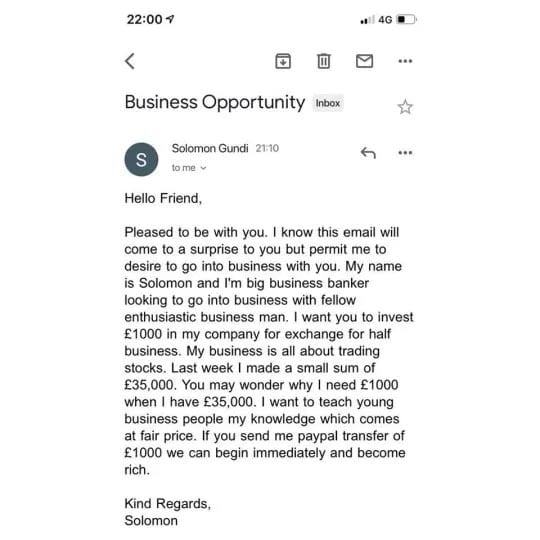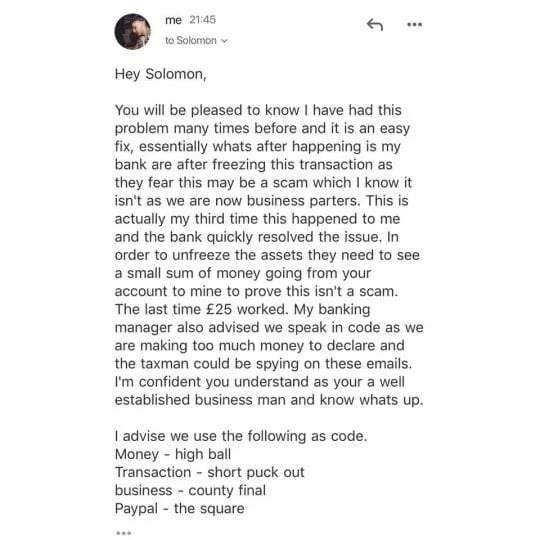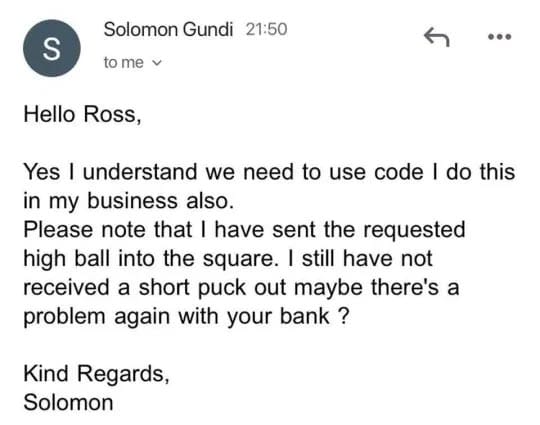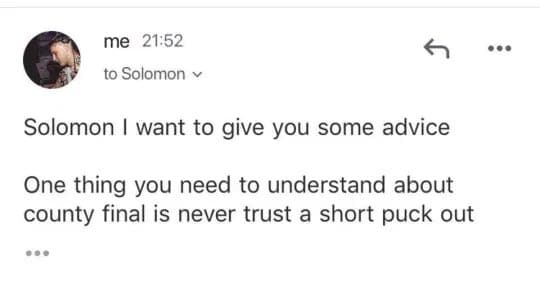Student tricks “419” scammer into sending HIM money
When a 22 year old student found himself the target of an ‘advance fee 419’ fraudster, he took matters into his own hands, and quite literally reversed the scam back onto the crook.
Advance fee email scams are perhaps one of the most commonly used and oldest scams employed by crooks on the Internet. For most people, they are often the easiest to spot due to their notoriety. But such scams can exploit vulnerable people for extremely large sums of money, which is why crooks persist with them.
They’re the scams that frequently come from a “Nigerian Prince” or “Nigerian lawyer” promoting some type of business opportunity that will – according to the email – earn the recipient thousands, even millions of dollars. Just as soon as the recipient coughs up some money first (an advance fee.) The crook tricks the recipient into sending them the “advance fee” and runs off with it. Or worse, attempts to trick the victim into handing over more money.
Sponsored Content. Continued below...
The email that student Ross from Limerick received recently – titled “Business Opportunity” – was pretty typical of this kind of scam, coming from one “Solomon Gundi”, a self-proclaimed “big business banker” looking for a £1000 investment in his company aimed at teaching young business people. In the email, Solomon boasts of £35,000 per week profits.

For most of us, we’d simply throw the email in the recycling bin and never think about it again. But Ross decided to try and get his own back, pretending to be “intrigued” by Solomon’s business proposal, and instead offered Solomon a whopping £50,000.

Attached to Ross’s response email was a payment confirmation screenshot (photoshopped, naturally.)
We expect Solomon could hardly believe his luck. His next response was to thank Ross, claiming he must be a “real business man”, but notes that the £50,000 was yet to appear in his account.
Ross explained that his bank had freezed the money, fearing that (ironically) it might be a scam. But that’s okay, Ross reassures Solomon, because all Solomon has to do is to send a small amount of money to Ross first, in order to verify his account and consequently unfreeze the £50,000. Say, £25? Also Ross explains that they should speak in code, to avoid suspicions of the “taxman” who may be lurking.

Finally, Solomon confirms that the money – sorry, the “high ball” was on its way.

Which is when Ross sends his sign-off to Solomon…

As for the £25, Ross donated it to the Irish Cancer Society.
Because Ross promised the crook a higher payout on the condition the crook sends over a smaller amount of money, Ross literally flipped the same scam right back onto the crook.
Remember, Advance Fee Fraud, alternatively known as a “Nigerian scam” or “419 scam” due to the scams prevalence in Nigerian (419 is the penal code in Nigeria for this type of crime) will rely on the victim paying out money in order to get a much larger sum that doesn’t really exist.
Never give out money to people you don’t know on the Internet, especially in response to an unsolicited email or message. Popular derivatives of this scam include the “you’ve inherited millions” variant and the “you’ve won the lottery” variant, though countless other permutations of this scam exist online.
Continued below...
Thanks for reading, we hope this article helped, but before you leave us for greener pastures, please help us out.
We're hoping to be totally ad-free by 2025 - after all, no one likes online adverts, and all they do is get in the way and slow everything down. But of course we still have fees and costs to pay, so please, please consider becoming a Facebook supporter! It costs only 0.99p (~$1.30) a month (you can stop at any time) and ensures we can still keep posting Cybersecurity themed content to help keep our communities safe and scam-free. You can subscribe here
Remember, we're active on social media - so follow us on Facebook, Bluesky, Instagram and X
